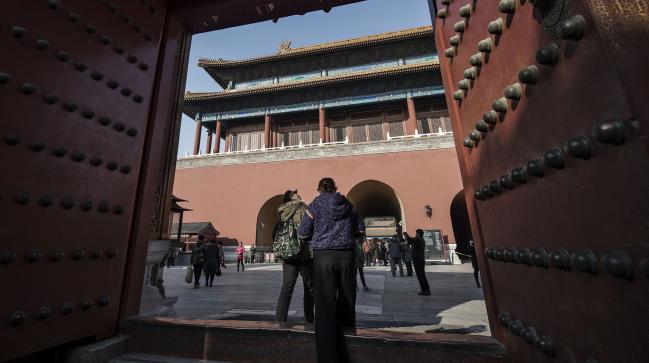(Bloomberg) -- China adopted a carrot and stick approach to the U.S. on Tuesday as the risk of a trade war between the two powerhouse economies continued to simmer.
At the same time that Beijing promised foreign car makers such as Ford Motor (NYSE:F) Co. greater freedom to compete in the world’s biggest market, it also slapped anti-dumping duties on imports of U.S. sorghum. The contrasting moves send a message to Washington: China is willing to open some areas of its economy, but will also respond to signs of rising U.S. protectionism.
The question for U.S. President Donald Trump, as he mulls whether to follow through on threatened tariffs on as much as $150 billion in Chinese imports, is whether to focus on the concessions or the curbs. His attack on China’s currency policy this week and the banning of sales of crucial American technology to telecommunications-gear maker ZTE Corp. signal a hawkish stance.
Treasury Secretary Steven Mnuchin early Tuesday doubled down on Trump’s charge that China is gaming its currency, describing the remarks in a CNBC interview as a “warning shot” about the consequences of devaluation. But he also said that he’s “cautiously optimistic” for a deal to end the trade dispute between the two countries.
“The president is personally involved on this issue,” he told reporters last week.
Larry Kudlow, director of the White House National Economic Council, offered a low-key response to China’s latest trade moves.
“Whenever they’re moving in our direction in a regulatory way, whenever they’re lowering barriers, that’s a good thing,” Kudlow told reporters in a briefing Tuesday. “When however they raise barriers, as they seem to be on the farm issue, that’s not good."
Officials in Beijing have repeatedly made clear that the nation doesn’t want a trade war, but have vowed to fight Trump’s trade policy “to the end” if needed.
Trump has already proposed tariffs covering $50 billion in Chinese products targeting industries including aerospace, robotics and machinery and may add levies on an additional $100 billion of goods.
China has retaliated with a pledge to levy a 25 percent tariff on about $50 billion of U.S. imports including soybeans, automobiles, chemicals and aircraft. It will impose temporary anti-dumping deposits on U.S. sorghum imports from Wednesday.
Trump isn’t alone in complaining about China’s trading practices. Governments and corporate officials from around the world routinely complain that China blocks foreign competitors from their economy, forces technology transfer from overseas firms and backs state-sponsored national champions at the expense of private enterprise.
By removing the 50 percent foreign-ownership limit on Chinese automotive businesses, Beijing addressed a longstanding trade grievance without bowing to specific U.S. tariff demands. China has been promising to ease the rules since well before Trump was elected president.
How effective the move is in opening up the market will come down to implementation. Virtually all major U.S., Asian and European car makers are already locked into joint ventures with Chinese partners, after spending billions of dollars to enter the country over the past three decades.
Those deals can’t be undone until at least 2022 and the cost is likely to be prohibitive. The process for setting up new independent plants, as Tesla (NASDAQ:TSLA) is attempting, will require approvals from local governments that often have ties to Chinese manufacturers.
The European Chamber of Commerce, which counts Volkswagen (DE:VOWG_p) AG, BMW and Daimler AG (DE:DAIGn) as members, has lobbied for years for the cap’s removal. It said it’s awaiting more details and hopes the changes “allow much greater participation of foreign enterprises across multiple industries in China.”
“We’ve seen comments from China about their plans to liberalize, but until we see the regulations and laws that will actually implement these plans, it’s hard to say what the benefit will be,” said Erin Ennis, senior vice president at the U.S.-China Business Council, in Washington.
Trade tensions haven’t dulled China’s growth story yet. The economy expanded 6.8 percent in the first quarter from a year earlier, matching the pace set in the final three months of last year. In a reflection of the nation’s economic evolution, services and consumption fueled the expansion.
(Updates with Kudlow comments beginning with sixth paragraph.)
